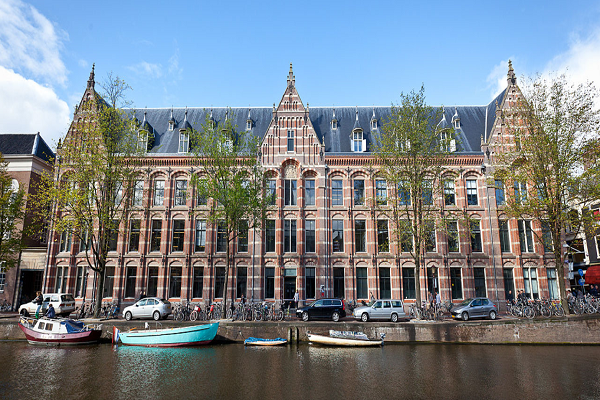University of Amsterdam welcomes professor of Political Science
Dr. Ursula Daxecker has been appointed professor of Political Science specializing in Democracy and Conflict at the Faculty of Social and Behavioral Sciences of the University of Amsterdam (UvA). Daxecker will examine the relationship between democracy and violent and non-violent conflict. ‘Conflict is a central aspect of politics.’
The relationship between democracy and conflict
‘Conflict can be managed politically so that disputes are resolved peacefully, but it can also break out into the open and turn violent’, explains Daxecker. The professorship will focus on whether and how political institutions, especially democracy and the holding of elections, help contain and resolve conflict or fail to do so. ‘Most countries in the world have adopted democratic processes, but elections often fall short of being free and fair, and can even descend into large-scale violence. How can we make sense of the relationship between democracy and conflict?’
Understanding democratic backsliding and polarization
The professorship will explore how violence contributes to democratic backsliding and the rise of polarization and misinformation in the world today. ‘On the one hand, violence can undermine democracy by excluding people from participating in democratic politics, such as when politicians use intimidation and coercion to suppress voting. In elections held in Nigeria earlier this year, less than a third of those eligible voted. On the other hand, violence can also threaten democracy by increasing participation. When ethnonationalist politicians in India incite or sponsor violence against minorities, they do it to increase support from their own voters. While harmful for democracy, we have seen that violence can be a winning electoral strategy.’
The role of politicians and political parties
Politicians and political parties are important for understanding the relationship between democracy and conflict. Daxecker says, ‘parties can be important arbiters of democracy, but they are also strategic actors who want to win elections. Politicians may use extreme strategies, including violence, if they expect that they will help them politically. Democratic institutions can and do constrain political parties from engaging in large-scale violence. But for politicians with few non-violent policy options, such as those in developing countries, coercion could still be an attractive means to stay in power. And even politicians who are more constrained in using coercion, such as those in established or wealthy democracies, can still benefit from hostile rhetoric and violence.’
Teaching courses on democracy and conflict
Daxecker uses social science theories and tools to teach courses on democracy and conflict. ‘Courses such as ‘Violence and Security’ and ‘Democracy, Autocracy, and Transitions (DAT)’ are at the heart of my research interests. I am excited to teach DAT for the first time next academic year.’ As part of a new cross-faculty project on democratic backsliding, she is also exploring options for a new interdisciplinary minor on democratic resilience.
About Ursula Daxecker
Ursula Daxecker joined the Political Science department at the University of Amsterdam (UvA) in 2013. From 2020 to 2025, she is principal investigator of the project ‘Elections, Violence, and Parties,’ funded by the European Research Council. In this project, Daxecker and her team (Neeraj Prasad, Noyonika Das, and Maureen Fubara) explore the role of parties in elections and violence in Nigeria and India, two of the largest democracies in the world. The project combines quantitative analyses, such as advanced inferential statistics and elite and citizens surveys, with in-depth qualitative work in these contexts, including interviews and content analysis of highly local news gathered in collaboration with a local NGO.

